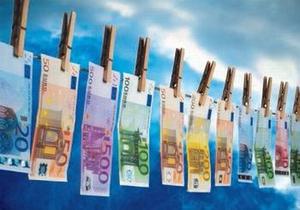Terrorism financingAussie police uncovers vast money laundering operation used by terrorists, criminals
Terror groups are known to rely on money laundering operations to finance their activities. A recent operation by an Australian government taskforce has revealed the scope of money laundering operations within the country’s borders. The investigation, which has uncovered forty money laundering operations in Australia, has so far seized $26 million in cash, seized $30 million worth in houses and other assets, and has intercepted drug shipments worth at least $530 million.

Australian probe closes dozens of laundering operations // Source: langyuda.net
Terror groups are known to rely on money laundering operations to finance their activities. A recent operation by an Australian government taskforce has revealed the scope of money laundering operations within the country’s borders.
Project Eligo, Australia’s biggest money-laundering probe, has identified hundreds of Australians who helped launder drug money, funds from human trafficking, and other crimes to finance terror groups around the world. The investigation, which has uncovered forty money laundering operations in Australia, has so far seized $26 million in cash, seized $30 million worth in houses and other assets, and has intercepted drug shipments worth at least $530 million.
TheAge reports that dozens of “exchange houses,” or money laundering centers, in the Middle East and Asia are used to distribute the money to crime syndicates.
At least one exchange house in Australia launders money for the Lebanese terrorist group Hezbollah. In 2013, The U.S. Department of the Treasury identified two Lebanese exchange houses, Rmeiti Exchange and Halawi Exchange, as drug money launders for Hezbollah.
Operation Eligo has been monitoring businesses involved in drug money laundering for at least twelve months and in that time has identified roughly 130 high-level organized crime figures previously unknown to law-enforcement agencies. Col Blanch, acting Australian Crime Commission operations manager, notes that the large scale of Operation Eligo has required the assistance of state and federal Australian police, in addition to the U.S. Drug Enforcement Administration. “The amount of money and targets overwhelmed us. So all the agencies had to come working together. We saw this network of people whose job was to deliver money to banks,” Blanch said. ”It was just never ending. We were regularly finding bags of $500,000 and $400,000.”
One method used to launder money involves foreign nationals and students who regularly engage in foreign bank transactions. In this case, crime figures deposit Australian drug money into the bank accounts of the victims, then request money from an overseas bank via the victims’ bank account. The scheme relies on infiltrating trust-based informal banking or remittance and exchange house services, which are common in China, the Middle East, and Vietnam.
Blanch insists that Australian law enforcement is working to notify immigrants or tourists of such schemes. “We are trying to educate these innocent people. If we have new arrivals in the country, we want to educate them. If they are moving their money this way you risk being exploited by serious organized criminals.” Another scheme reported by theAge involves using stolen identification cards of foreign students to set up Australian bank accounts. ”We have found that students have been remitting large amounts of money when they are not even in Australia,” The newspaper says.
